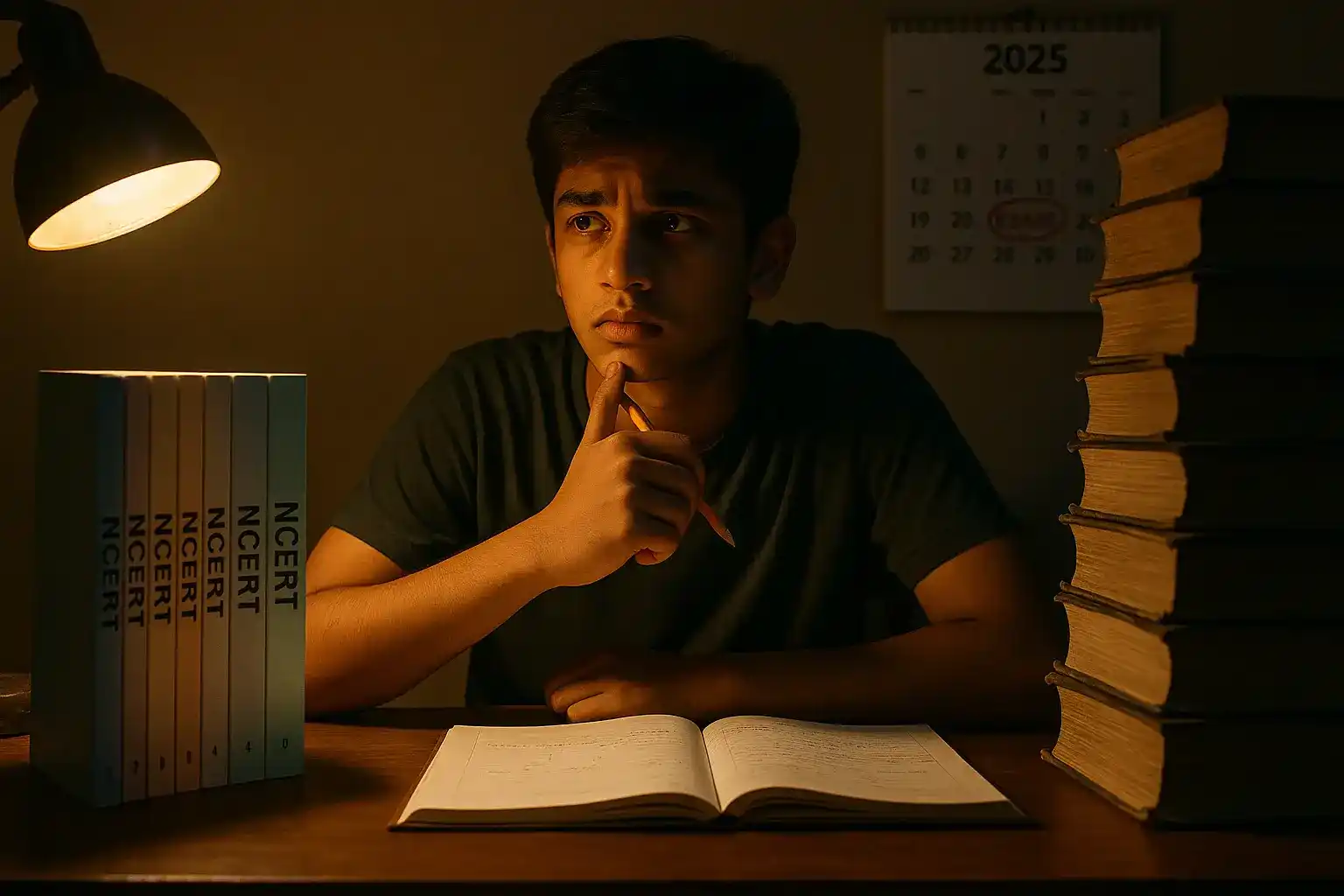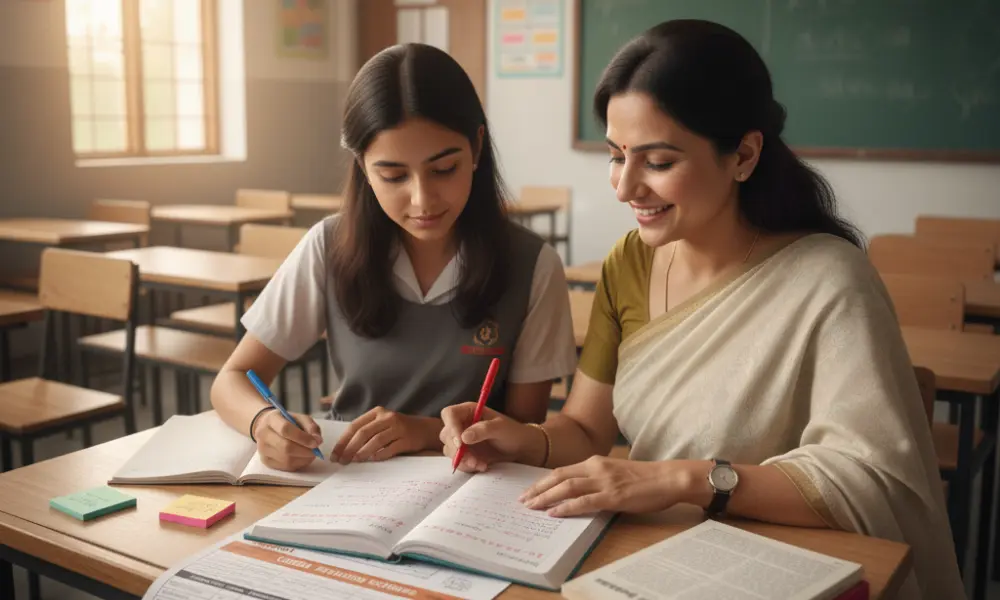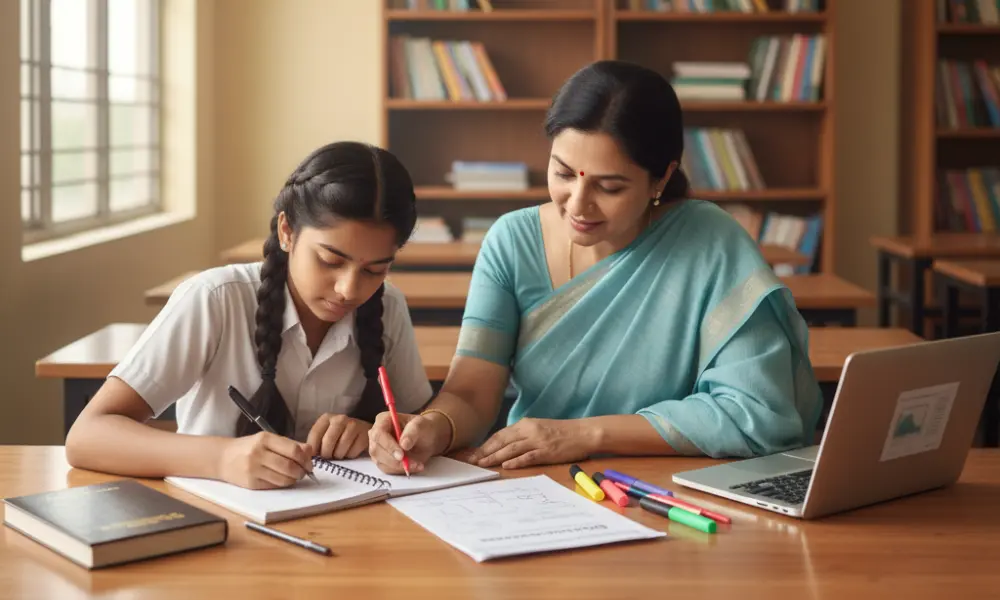NCERT vs Reference Books – What Should CBSE Students Really Rely On for 2025 Exams?
Decoding the balance between NCERT and reference books for CBSE exam success
CBSE students often wonder whether to stick to NCERT or explore reference books. This detailed guide explains which to prioritize and how to use both effectively for the 2025 exams.

Every CBSE student preparing for the 2025 board exams faces the same big question. Should I rely on NCERT textbooks alone or should I add heavy reference books to my study routine. Parents too often struggle to guide their children in making this choice. The answer is not one size fits all. Instead it depends on understanding the role each resource plays and how to balance them wisely.
Why NCERT is considered the core resource
NCERT textbooks are the official foundation for all CBSE exams. They are written by subject experts with the exam pattern in mind. For board exams the majority of questions directly come from NCERT. Even when questions seem twisted or application based they usually stem from NCERT concepts. Teachers emphasize NCERT because it ensures conceptual clarity without overwhelming students with unnecessary details.
If you do not master NCERT you cannot master the CBSE board exams. Period.
For subjects like Science and Social Science many examiners check answers against NCERT phrasing. This makes NCERT not just important but indispensable. Even competitive exams like NEET and JEE include a large portion of NCERT based questions in their initial stages.
Limitations of relying only on NCERT
While NCERT is essential it has certain limitations. It may not provide enough practice problems for Maths or sufficient variety in question patterns for Science. For English literature the NCERT book only gives the prescribed texts but does not offer enough model answers or practice questions. Students aiming for 95 percent and above often find NCERT alone insufficient for higher order application based questions.
When and how to use reference books
Reference books should be used as supplements not substitutes. Their role is to provide extra practice exposure to tricky questions and deeper explanations when NCERT feels too brief. The right approach is to complete NCERT thoroughly first then use reference books selectively to strengthen weak areas.
For Maths solve additional problems from books like RD Sharma or RS Aggarwal once NCERT is complete
For Science use Lakhmir Singh or Pradeep as reference for higher order questions
For English consult reference guides only for sample answers and comprehension practice
Subject wise analysis
Mathematics
NCERT exercises cover every concept required for boards but the number of questions is limited. Students should begin with NCERT examples and exercises then practice additional problems from reference books for speed and accuracy. Past year papers also act as a valuable supplement.
Science
Physics Chemistry and Biology concepts are clearly explained in NCERT. However reference books provide additional solved examples and application based questions which are helpful for exam confidence. For Class 10 students aiming for competitive exams references also build the base for future preparation.
English
In English the NCERT textbooks First Flight and Footprints Without Feet form the syllabus. But students often need practice in comprehension writing skills and sample answers for literature questions. Reference books or school provided guides can be useful here.
Common mistakes students make with reference books
Many students get lost in the bulk of reference books. They start with reference material before finishing NCERT leading to confusion and wasted time. Another mistake is trying to solve every single question in reference books which is unnecessary and drains focus. Parents sometimes push for expensive reference sets thinking more is better but quality matters far more than quantity.
How toppers balance NCERT and references
Toppers almost always emphasize finishing NCERT first multiple times. They revise NCERT line by line making notes of key definitions and diagrams. Only after mastering NCERT do they move to reference books. They do not aim to finish entire references instead they target selected chapters or tricky areas. Many toppers also use question banks and sample papers as a middle ground between NCERT and bulky references.
Tips for parents to guide resource selection
Parents play a vital role in ensuring students do not get overwhelmed. Instead of buying every popular reference guide parents should:
Confirm the child has fully completed NCERT before investing in references
Choose one reliable reference per subject rather than multiple
Encourage practice of past year papers and sample papers
Keep an eye on whether references are genuinely helping or creating stress
Final recommendation for 2025 exams
For the 2025 CBSE exams NCERT should be every student’s first and primary resource. Reference books are useful but only after NCERT mastery. Students should focus on NCERT examples diagrams and in text questions thoroughly. After that selected practice from reference guides can boost marks and build exam confidence. Balance is the key. Master NCERT revise it repeatedly and use references only where needed. This strategy ensures students stay focused without getting lost in the ocean of extra material.
NCERT is the map reference books are the side routes. Follow the map first then explore the side routes only when required.
Suggested blogs

How to Improve English Writing Skills for CBSE Exams
Mastering English writing for better CBSE exam scores

How to Build Concept Clarity in NCERT Science
Mastering Science through Concept Clarity for NCERT Students

Unlocking the Power of Grammar: Common English Mistakes CBSE Students Should Avoid
Master grammar to enhance your writing and avoid common pitfalls.

Everyday Chemistry: Real-Life Examples That Make Concepts Stick
Discover how everyday chemistry makes learning engaging and relatable.
